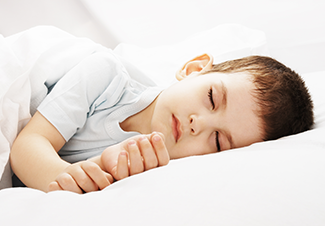Your Cart is Empty
Free Shipping on ALL alarms!
And on all orders of $35 or more *Continental US only
Free Shipping on ALL alarms!
And on all orders of $35 or more *Continental US only

Bedwetting children are mostly considered to be very sound sleepers by their parents. Actually, children’s sleep patterns in general are different than adults. (But in most cases, parents of children who don’t have a problem with bedwetting don’t try to waken their children in the middle of the night). Research reported in the Fire Safety Journal suggests that only 15% of children ages 6-17 years actually woke up to the loud sound of a fire alarm in the home. This research was conducted on all children, not only those with bedwetting.
Wetting While Sleeping
Bedwetting children let their urine out during sleep and are not aware that this happens. Their bladders may hold less than average and/or they may not have developed the brain-bladder connection that alerts them when they need to use the bathroom. There is often a family history of bedwetting.
Because of the perception of deep sleep, most parents worry that their child will not hear or respond to a bedwetting alarm. In fact, it is likely that your child will sleep through the alarm sound initially. But a bedwetting alarm helps you, as a parent, to be alerted when the wetting occurs.
What You Can Do
Parents play an important role in rousing their sleeping child once the alarm has gone off. As long as the alarm is loud enough for parents to hear, you can provide back-up if your child does not respond initially. If your room is far from your child’s room, wireless alarms with two receivers solve this problem. One receiver sounds in the child’s room and one sounds in the parent’s room. Or a baby monitor in your child’s room would enable you to hear the alarm when it sounds.
Over time, your child will begin to learn that the alarm’s sound is something that needs attention. Progress continues to take place, as the flow of urine is stopped, and wetting happens less and less frequently.
When your child can respond independently to the alarm, getting up and going to the bathroom by himself, you can stay in bed.
When Wetting Happens
The bedwetting alarm may sound at any point in the sleep cycle. If the wetting occurs in the first few hours of sleep, your child may be especially difficult to wake up, be disoriented or even combative. She will not remember any of this behavior in the morning. I see this frequently in the first few weeks of using an alarm. Don’t be discouraged!
If the alarm sounds later in the sleep cycle, your child has an easier time of responding, knowing what to do next, and remembering everything in the morning. As your child makes progress, he will hold the urine in longer so the alarm goes off later.
Success
Eventually, the brain and bladder begin to work together to alert your child before the wetting occurs or to hold the urine until morning. Your child should use their alarm until they achieve 14 consecutive nights of dryness.
Comments will be approved before showing up.